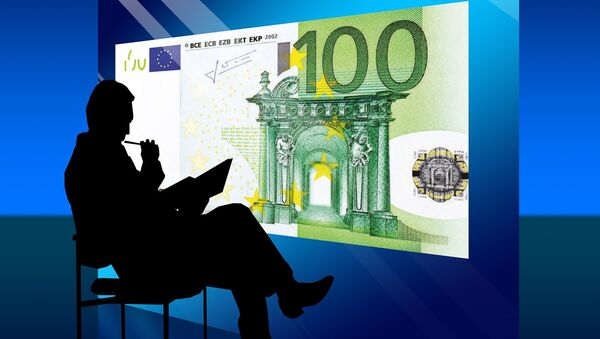MOSCOW (Sputnik) – The draft budget amounts to about $173 billion in commitments (a 0.9 percent increase on 2016) and around $148 billion in payments (a 7 percent decrease compared to 2016).
EU budget and financial instruments-report EU Court of Auditors https://t.co/DFbB6IJbF6 @EUAuditorsECA @EU_Regional pic.twitter.com/ahCrdcep9p
— Wolfgang Petzold (@WolfgangPetzold) 20 July 2016
"More than ever we need to ensure that the EU budget is focused on key priorities and enables the European Union to address the challenges that it is facing. I believe the Council's position responds to this necessity by offering appropriate means to stimulate growth, help creating jobs, reinforce security inside, and outside the EU and tackle the migration crisis. It also ensures good value for money by taking care that the financial resources match the needs," Vazil Hudak, Slovakia's chief negotiator for EU budget, was quoted as saying in the Council’s press release.
The Council plans to spend about $82 billion in commitments and around $62 billion in payments to support smart and inclusive growth by financing the bloc's research and innovation program Horizon 2020; the European fund for strategic investments; the Erasmus student exchange program; the youth employment initiative as well as allocating European aid for the most deprived.
Council agrees position for 2017 EU budget talks. Focusing on priorities + helping EU to address recent challenges https://t.co/S7ZueiOueO
— EU Council Press (@EUCouncilPress) 20 July 2016
The draft budget also contains a 14.4-percent increase in commitments and a 89.3-percent increase in payments for the Internal Security Fund to ensure a "high level of security."
The Council of the European Union is expected to adopt its formal position on the draft budget by mid-September. After that it will hold negotiations on the issue with the European Parliament.


